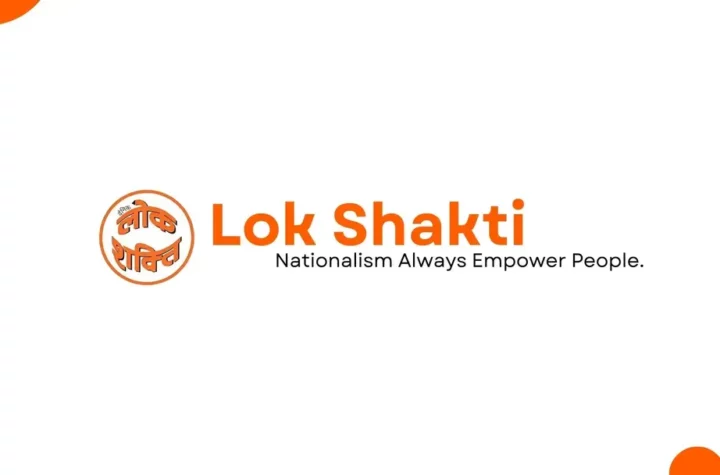
संविधान (एक सौ और तीसरा संशोधन) अधिनियम, 2019 की वैधता पर बहुमत के दृष्टिकोण से असहमति, जिसने अनारक्षित श्रेणी में आर्थिक रूप से कमजोर वर्गों (ईडब्ल्यूएस) के लिए 10 प्रतिशत आरक्षण की शुरुआत की, न्यायमूर्ति एस रवींद्र भट और भारत के मुख्य न्यायाधीश यूयू ललित ने कहा कि यह एक “बहिष्करण” बनाता है जो “समानता संहिता के दिल पर प्रहार करता है … जो संविधान के मूल का एक हिस्सा है”।
यह कहते हुए कि वह बहुमत के दृष्टिकोण से सहमत नहीं हो सकते, न्यायमूर्ति भट, जिन्होंने खुद और सीजेआई के लिए फैसला लिखा था, ने कहा, “इस अदालत ने पहली बार, गणतंत्र के सात दशकों में, एक स्पष्ट रूप से बहिष्करण और भेदभावपूर्ण को मंजूरी दी है। सिद्धांत। हमारा संविधान बहिष्कार की भाषा नहीं बोलता। मेरी राय में, बहिष्कार की भाषा में संशोधन, सामाजिक न्याय के ताने-बाने को कमजोर करता है, और इस तरह, मूल संरचना ”।
“यह बहिष्करण गैर-भेदभाव और समानता संहिता के गैर-बहिष्करणीय पहलू का उल्लंघन करता है, जो इस प्रकार संविधान की मूल संरचना का उल्लंघन करता है।”
जबकि गरीबी के कारण वंचितों का सामना करने वाली आबादी के एक वर्ग की सहायता में सकारात्मक कार्रवाई के लिए ‘आर्थिक मानदंड’ को जोड़ना या सम्मिलित करना, अनुच्छेद 46 के आगे, संवैधानिक सिद्धांतों से नहीं भटकता है, ताकि परिवर्तन किया जा सके। इसके मूल ढांचे का उल्लंघन, या नष्ट करना”, उन्होंने कहा, समस्या “कार्यान्वयन के तरीके में निहित है – अर्थात, कला के तहत कवर किए गए लोगों का निहित बहिष्कार। 15(4) और 16(4) [Scheduled Castes (“SC”), Scheduled Tribes (“ST”), and socially and educationally backward classes (“SEBC”)” from its purview.
Justice Bhat said “the application of the doctrine (of) classification differentiating the poorest segments of the society, as one segment (i.e., the forward classes) not being beneficiaries of reservation, and the other, the poorest, who are subjected to additional disabilities due to caste stigmatisation or social barrier based discrimination – the latter being justifiably kept out of the new reservation benefit, is an exercise in deluding ourselves that those getting social and educational backwardness based reservations are somehow more fortunate. This classification is plainly contrary to the essence of equal opportunity”.
On the argument that backward classes are already loaded with benefits, he said these were not “free pass” but “a reparative and compensatory mechanism meant to level the field – where they are unequal due to their social stigmatisation”.
The minority ruling said “the othering of socially and economically disadvantaged classes, including SCs, STs and OBCs, by excluding them from this new reservation on the ground that they enjoy pre-existing benefits is to heap fresh injustice based on past disability”.
“Firstly, it “others” those subjected to socially questionable, and outlawed practices – though they are amongst the poorest sections of society. Secondly, for the purpose of the new reservation, the exclusion operates against the socially disadvantaged classes and castes, absolutely, by confining them within their allocated reservation quotas… Thirdly, it denies the chance of mobility from the reserved quota (based on past discrimination) to a reservation benefit based only on economic deprivation.”
“The net effect of the entire exclusionary principle is Orwellian, (so to say) which is that all the poorest are entitled to be considered, regardless of their caste or class, yet only those who belong to forward classes or castes, would be considered, and those from socially disadvantaged classes for SC/STs would be ineligible.”
Agreeing that economic condition can be a ground for affirmative action, the minority ruling said “the amendment creates pathways, gateways and opportunities to the poorest segments of our society enabling them multiple access points to spaces they were unable to go, places and positions they were unable to fill and opportunities they could not hope ever ordinarily due to their destitution, economic deprivation and penury”.
Though “these, destitution, economic deprivation, poverty are markers or intelligible differentia forming the basis of the classification on which the impugned amendment is entirely premised. To that extent the amendment is constitutionally indefeasible”, the amendment by “excluding a large section of equally poor and destitute individuals based on the social backwardness on legally acknowledged class stigmatisation, from the benefit of the new opportunities created for the poor… practises constitutionally prohibited forms of discrimination”.
Justice Bhat pointed out that the Sinho Commission, which was set up to examine the condition of the economically backward classes, had in its 2010 report cited NSSO statistics of 2004-2005. The NSSO statistics “disclosed that in all, 31.7 crore people were below the poverty line (“BPL”), of which the scheduled caste population was 7.74 crores (i.e., 38% of total scheduled castes), scheduled tribe population was 4.25 crores (48.4% of total scheduled tribes), 13.86 crores of OBC population (which was 33.1% of total OBCs), and 5.85 crores of General Category (18.2% of total general category)”.
“These facts establish that the bulk of the economically weaker sections of the society belong to the classes which are described in Articles 15(4) and 16(4),” he said.
The minority ruling agreed that the State was empowered to make provisions for reservations for admission in private, unaided institutions, saying “unaided private institutions including those imparting professional education cannot be seen as standing out of the national mainstream”.
It said that as held in previous judgements, “reservations in private institutions is not per se violative of the basic structure. Thus, reservations as a concept cannot be ruled out in private institutions where education is imparted. They may not be the State or State instrumentalities, yet the value that they add is part of the national effort to develop skill and disseminate knowledge. These institutions also constitute material resources of the community in which the state has a vital interest and are not merely bodies set up to further private objective of their founders, unlike in the case of shareholders of a company”.
Disagreeing with the majority view on 50 percent cap on reservation, Justice Bhat pointed out that petitions challenging the breach by some states are already pending and the majority view that “creation of another class which can be the recipient of up to 10% of reservations over and above 50% permitted under Article 15(4) and 16(4)… has a direct bearing on the likely outcome in the challenge in that proceeding. I would therefore sound this cautionary note since this judgment may well seal the fate of the pending litigation – without the benefit of hearing in those proceedings”.


More Stories
जम्मू-कश्मीर: नेशनल कॉन्फ्रेंस द्वारा दक्षिण कश्मीर लोकसभा सीट पर गठबंधन को खारिज करने के बाद पीडीपी कांग्रेस से संपर्क करेगी
आईटी ट्रिब्यूनल ने पिछले टैक्स रिटर्न पर जुर्माना हटाने की कांग्रेस की अपील खारिज कर दी
एमएससीबी घोटाला: ईडी ने शरद पवार के पोते की 50 करोड़ रुपये से अधिक की संपत्ति कुर्क की